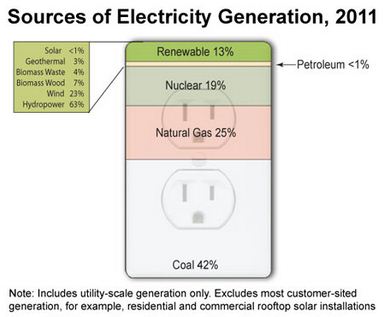We Can't See Our Universe
SEARCH BLOG: SCIENCE
As I go about my daily reading, one source of information I check occasionally is The Reference Frame written by Luboš Motl, a Czech physicist. Recently, he posted a note [and the picture below] about a gamma-ray burst some 7.5 billion light years... about half the distance of the farthest observed object... away from us that was visible by the naked eye.
Like many people who are not scientists, I have always had a fascination about astronomy... mainly the neat pictures as opposed to the tedious work. The immensity of our known universe is too much to really comprehend. Even trying to scale down the universe into something that represents it gives a result that is too big for real comprehension.
One of the questions that has been there all along, but has never been answered in a way that I can understand, is what does the universe look like now? Well, think about it.
The picture above represents something that is 7.5 billion light years [7.5 billion times 9.5 trillion kilometers] away. That's too many billion-trillion miles/kilometers away for me to begin to understand.
But wait! If we are seeing something as it was relative to earth that long ago... where is it now? I'm presuming that the measurements are based on the apparent distance that we can observe, since all light reaching the earth at any moment started out at a different instant... a different moment in time.Astronomers tell us that the universe is expanding at an accelerating rate. Certainly not at the speed of light... but some objects are moving away from us at close to that speed. And most of the universe seems to be moving away from most everything else... expanding in all directions. So, does that mean that those really distant objects of 10-15 billion light years distance are more like 20-30 light years away now? Think about that! Okay, that's enough.
That means, even looking at the sun and planets, we are looking through time as well as space. Travel through time may or may not be possible, but viewing through time is something we do every day.
Large portions of the universe could have changed significantly or already disappeared or new portions appeared... and we will never know about it... will never see it... even if those changes happened when earth was forming or when life first appeared on earth.Thanks, Luboš, my whole day is ruined. I guess we'll just have to be content with a picture of reality that is really, really distorted by time and space... and focus on closer objects and issues... like presidential candidates and climate scams.
And if we ever figure out how to travel really, really fast through space, will we be headed for something other than what we can see when we start? That nice solar system might have become a supernova and we haven't seen it yet.
And what if the end of the Universe has already started someplace far away, but we think those nice galaxies are still spinning around. We could be doomed already and not even know it!
Where's my aspirin?..






